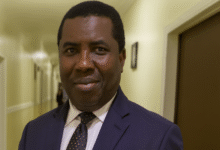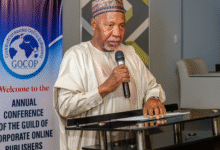Nigeria improves in global competitiveness ranking – Minister
 Dr
Dr
Ogbonnaya Onu, Minister of Science, Technology and Innovation, said the World Economic Forum indicated Nigeria’s improvement in global competitiveness from position 124 in 2015 and 2016 to 114 in 2018 and 2019.
Onu, who disclosed this at the 20th Meeting of the National Council on Science, Technology and Innovation (NCSTI) in Abuja on Thursday, said a total of 140 nations were involved in the ranking.
He said that policies such as the National Strategy for Competitiveness in Raw Materials and Product Development, with the Presidential Executive Order 5 contributed to this improvement.
He also said that in 2019, the patents facilitated by the National Office for Technology Acquisition (NOTAP), under the supervision of his ministry, contributed 65 per cent of the total patents generated in the country.
Onu advised that states should ensure that they take the advantage of the resolutions of the council meetings in planning the pathway for the development of their various states.
“STI is the key that will unlock tremendous opportunities and liberate the latent energy of our dear nation.
“All aspects of our national life will be positively affected,” he said.
He observed that the COVID-19 pandemic taught Nigeria the importance of self-reliance.
“The Russia-Ukraine war also shows clearly that every nation must effectively utilise to ensure that it’s territorial integrity will always be protected.
“Also, the adverse effect in the anticipated shortfall in imported wheat for bread production arising from this war can be ameliorated by utilising research and innovation work already carried out by the Federal Institute for Industrial Research, Oshodi(FIIRO),” he said.
READ ALSO:https://brandeconomy.com.ng/brt-primero-blames-skeletal-operations-on-high-cost-of-diesel/
The minister said that FIIRO through research and innovation had produced bread of comparative quality with 20 per cent substitution of cassava flour.
Onu expressed optimism that Nigeria could make substantial savings through reduction in wheat import and yet produce bread of comparable quality.
Also speaking, Clara Pulidu, Cuban Ambassador to Nigeria, said that Nigeria and Cuba shared a common history and culture in the area of STI which could create a real avenue for future cooperation.
.
Kano State Governor, Abdullahi Ganduje, represented by his deputy, Nasiru Yusuf, said that countries that do not embrace STI would only rely on others for survival.
Mohammed Abdullahi, Minister of State for STI said that Nigeria’s ambition was to look inwards and commence domestic production of essential raw materials and products.
(NAN)











